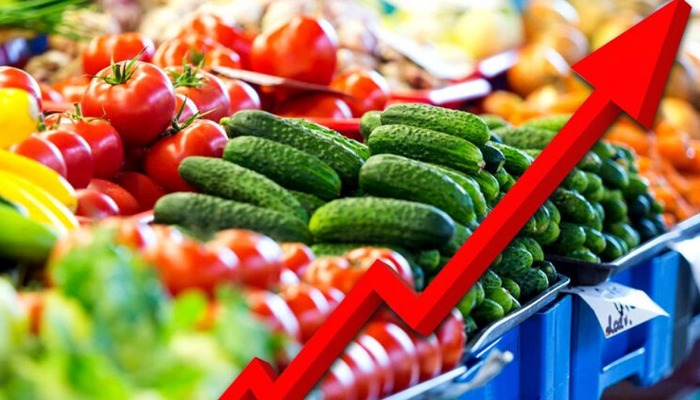
Keep up with the latest news and be part of our weekly giveaways and airtime sharing; follow our WhatsApp channel for more updates. Click to Follow us
Nigeria’s soaring food inflation rate has slowed down, dropping to 39.84% in December 2024, according to the Consumer Price Index (CPI) data released by the National Bureau of Statistics (NBS). This slight decrease brings some relief to families struggling to make ends meet.
The NBS data shows that while the headline inflation rate rose marginally to 34.80% in December, the food inflation rate has been on a downward trend since its peak of 40.9% in June 2024.
Experts attribute the drop in food inflation to the decrease in prices of essential items like yam, potatoes, rice, and maize flour, which are currently in their harvest season.
The federal government’s efforts to combat rising food costs, including the introduction of a food import duty waiver, have shown some promise. A recent shipment of 32,000 tons of brown rice from Thailand is expected to help stabilize food prices.
However, it remains to be seen how long this downward trend will last, especially considering the government’s target of 15% headline inflation in its 2025 budget proposal.
The National Bureau of Statistics (NBS) reported that the average annual rate of food inflation for the 12 months ending December 2024 was 39.12%, which is 11.16 percentage points higher than the average annual rate of change recorded in December 2023.
While the drop in food inflation is a welcome relief, many Nigerians are still struggling to afford basic necessities. As one expert noted, “Marginal as this drop may be, it is a sign of hope for many families that have been looking forward to a time when their meager income can buy them three square meals a day.”
The federal government’s efforts to address food inflation, including the food import duty waiver, have been met with mixed results. The waiver, which was introduced in July 2024, aimed to reduce the cost of essential food items like maize, rice, wheat, and cowpeas. However, due to poor implementation and bureaucratic complexities, the policy did not quite achieve its intended goals.
Despite these challenges, the government remains committed to addressing food inflation. The recent shipment of 32,000 tons of brown rice from Thailand is part of efforts to stabilize food prices and ensure that Nigerians have access to affordable and nutritious food.
As the government continues to grapple with the complex issues surrounding food inflation, Nigerians can only hope that the downward trend in food prices will continue, bringing much-needed relief to families and individuals struggling.
Please don’t forget to “Allow the notification” so you will be the first to get our gist when we publish it.
Drop your comment in the section below, and don’t forget to share the post.









They are in harvest season, so the drop in food prices was expected. But what happens when the harvest season is over? When the harvest has been bought from the farmers and hoarded from the market? That’s what brings scarcity, and in the long run, it leads to an increase in food prices.